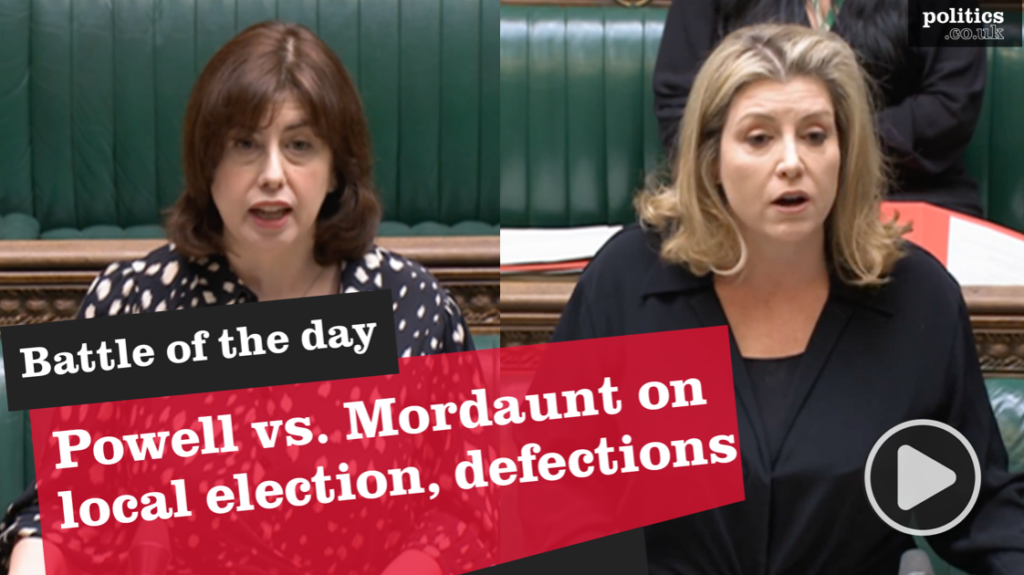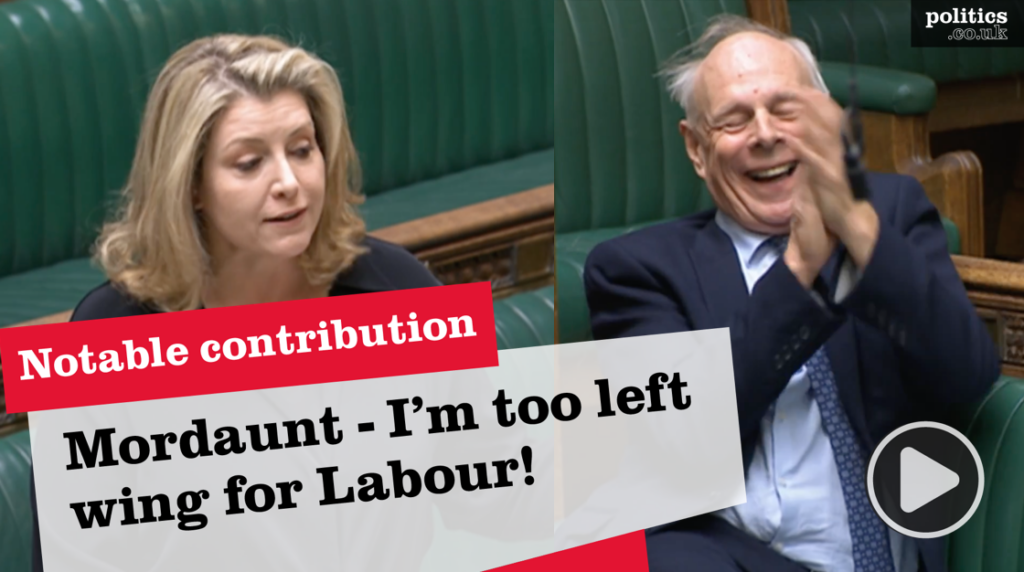Why do leaders and parties reinvent themselves? Here’s one obvious answer to that question: because they have to.
Rishi Sunak’s updated political approach, expounded this week before his party faithful, might simply be explained in terms of the Conservatives’ enduring electoral travails. With his party languishing behind the Labour in the polls, a refreshed approach is probably the reflex response. The voters aren’t happy, No 10 notes, so Sunak must signal a new departure: electoral necessity thus proves the mother of political invention.
But, step back from Sunak’s political predicament, and the factors that inform a political change in direction are typically rather more complex. Indeed, when commentators consider the Conservative party’s recent capacity for reinvention and renewal, political change is viewed in far broader, probably less calculated, terms.
As Conservative leader in the 2005-2010 period, David Cameron first won the argument against the status quo within his own party (personified by David Davis in the 2005 leadership election), before parading as the “change” candidate in the general. In 2016, Theresa May’s emphasis on “seven burning injustices” on the steps of No 10 was interpreted as her abjuring, rhetorically at least, on the platform of her predecessor. In 2019, Boris Johnson first dispatched Jeremy Hunt (termed Theresa-In-Trousers), before unveiling a restyled, Brexit-soaked Conservative party — with one-nationeers largely expunged — to the electorate that same year. Liz Truss, of course, repudiated decades of “economic orthodoxy” in her pitch as Conservative leader. And Rishi Sunak was swept into No 10 by his colleagues in October last year because he was roundly viewed as the antidote to Trussonomics.


In this way, the cycle of Conservative invention and reinvention has followed a familiar pattern since 2010: with a new political approach preceded at every stage by the coronation of a new leader. Consequently, it has become standard practice for that leader to then define themself in opposition to their ancien régime(s).
It is significant, therefore, that Sunak hailed a radical new departure on Wednesday, while midway through his period as prime minister (if 2024 does, in fact, prove to be his political terminus).
Thus the transition from Rishi 1.0, that pledge-propounding champion of stability, to Rishi 2.0, our PM’s latest status quo-smashing variant, is not informed by some totemic new “mandate” — that rhetorical crutch often leaned on by Sunak’s forebears. As UnHerd political editor Tom McTague explained acidly this week: “The man from Goldman Sachs looked at the books and made a decision — and we are all supposed to accept that this is how we are governed”.
Rather, this week’s Sunakian renaissance is founded on the prime minister’s self-declared analytical clarity. The centre of Sunak’s audacious new argument is that he has, in his first year as prime minister, located a “30-year political status quo” ripe for renewal: “Politics doesn’t work the way it should”, he explained on Wednesday, “We’ve had thirty years of a political system that incentivises the easy decision, not the right one.
“Thirty years of vested interests standing in the way of change. Thirty years of rhetorical ambition which achieves little more than a short-term headline”.
Then came the headline pitch: “I will lead in a different way. Because that is the only way to create the sort of change in our politics and in our country that we all desperately want to see”. Britain is broken, Sunak now insists — and only he, and he alone, can fix it.
This is a perfectly fine message on paper — perhaps, given the electoral stakes, it is the only message — but the strategy can only work if it is underpinned by genuinely transformative policy. So what is Sunak offering?
Having watered down key net zero targets last month, HS2 was the latest policy area to feel the force of the prime minister’s “long-termism” this week. He labelled the project the “ultimate example of the old consensus” as he detailed how the funding would be redirected to a new “Network North” program. “This is the right way to drive growth and spread opportunity across our country — to level up”, he said.
On top of this, Sunak said he would also replace A-levels and T-levels with an “Advanced British Standard”; and start a creeping ban on smoking for people born after 1 January 2009. That noise you hear — that’s the sound of a “30-year status quo” crashing to the ground.
But the truth is: the dissonance between Sunak’s stated objective and policy prescription seems vast.
Both Cameron and Johnson told bracing stories about their version of change as Conservative party chiefs — first corralling consensus in a leadership campaign before driving through their respective reforms. They knew, and could explain explicitly, where they were taking their party from and to — as well as how they would marshal support, stare down the naysayers and take their party to the pinpointed destination.
Sunak, having already been prime minister for almost a year now, does not have that luxury: he, and his mode of politics, is the “from”. And as for the to and the how, Sunak proffers merely a new policy platform. Step back and this was not some grand vision of “change” informed by some fresh political methodology — there is nothing especially virtuous about what the PM is doing. Governments make policy announcements and U-turns all the time.
What is more, even though 17 of those 30 wasted years Sunak now righteously rubbishes have been overseen by Conservative premiers, the PM still refuses to call out his predecessors by name. In fact, Sunak said he didn’t want to “waste time” going over the past and the “difficult circumstances” in which he came into office on Wednesday. The only individual Sunak associated with this period in his speech was Labour leader and MP since 2015 Keir Starmer, who is apparently “the walking definition of the 30-year political status quo I am here to end”.
That Sunak still refuses to directly and overtly repudiate his predecessors is significant. For by taking aim at Liz Truss, the prime minister could probably muster a far better narrative about the motives behind his swift transition from Rishi 1.0 to Rishi 2.0. If he was so bold, Sunak could insist that his dire inheritance — defined by post-Trussonomics politics — imposed upon him tyrannical structural constraints upon taking office. That was why he debuted five pretty apolitical pledges in January, and focussed unerringly on stable governance. But now, having reestablished economic credibility over the succeeding months, the “real Rishi” can take to the floor.
In this way, it is Sunak’s enduring party management problems that currently make a more vigorous political reinvention impossible. As we saw repeatedly at conference, Sunak does not have the authority to impose himself on his party and stare down his critics; nor does have a clear faction behind him which might help drive intellectual energy to the fore. He simply does not have the capital, like Cameron and Johnson, to lead the Conservative party — much less the country — on a journey of true “change”.
This fact notwithstanding, there is within the Conservative Party a clear hankering for a change in direction. But the problem for the PM is that, among his own MPs, this desire for a new departure has no clear organising principle. In the Conservative party, as we have seen over the past week, different factions are openly challenging each other for control over its direction.
Sunak’s party hence suffers no shortage of intellectual energy, it’s just that no leading backbench MP seeks to channel it to his cause. Likewise, the PM shows little interest in adopting the policy platform of the “New Conservatives” and Truss’ “Conservative Growth Group” of Tory MPs — not least of all because their visions appear, on key measures, entirely opposed.
“More!”, Conservative activists shouted during Sunak’s speech on Wednesday. It was viewed as a light-hearted show of encouragement by the ostensibly obliging prime minister — not what it really was: a demand, an order, a challenge. But while this call for “vision” from the PM could not have been clearer, as for the details, the Conservative Party has long ceased to speak with one voice.
As far as further structural limitations on Rishi Sunak’s power go, here are some things that have not changed over the last week: the Conservative party is still deeply divided on the European Court of Human Rights, the Rwanda plan still faces a showdown in the Supreme Court, the tax burden is still at a post-war high, Liz Truss exists, and — most importantly — the Conservative party still languishes in the polls.
Indeed, a survey of voting intention, carried out for The Times by YouGov, found that Labour maintained its 21-point lead over the Conservatives this week. It means Sunak has not won a “conference bounce” for his party.
But here is one very significant thing that has changed over the past week: Labour’s electoral standing in Scotland. The party’s victory in the Rutherglen and Hamilton West, with a swing of no less than 20.4 per cent, means Starmer will be more and more presumed as the next PM. As far as Sunak is concerned, this begs an important question: how can one pitch for the future when prevailing wisdom suggests you will soon be history?
On Wednesday, Sunak tried his best to answer this question — but he may have merely exposed how isolated he is among the competing factions that now comprise his Conservative party.
Josh Self is Editor of Politics.co.uk, follow him on Twitter here.
Politics.co.uk is the UK’s leading digital-only political website, providing comprehensive coverage of UK politics. Subscribe to our daily newsletter here.











